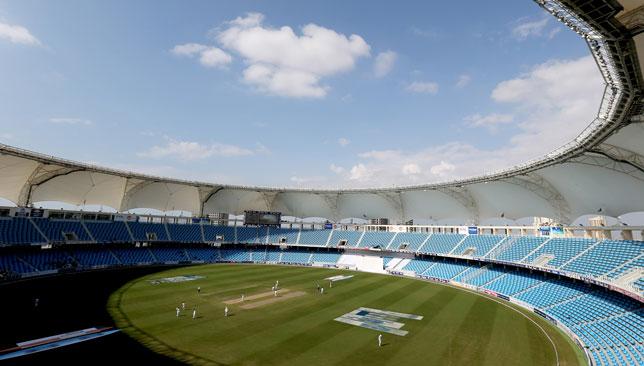
After Pakistan conclude a back scratching two-week tour of Zimbabwe, their next assignment is a home series against England. The word ‘home’ should, naturally, be taken with a pinch of salt; the series will once again take place in the UAE.
– PSL: Companies line up to buy into franchises
– Memon: The Game of Thrones battle at BCCI
– ICC: ‘Corruption will never fully be eradicated’
– PSL: UAE confirmed as hosts of first season
Reality was always going to catch up with Pakistan after their whirlwind romance in May, when Zimbabwe became the first Test side to visit the country since the horrific terrorist attack on Sri Lanka’s cricket team in March 2009. There was a feeling of normailty, and it seemed cruel at the time to point out how superficial that impression was. More than 4,000 policemen were deployed during the series and the route between the team hotel and the stadium was emptied of all traffic, with snipers positioned in undisclosed locations and helicopters hovering above. Zimbabwe’s Sports and Recreation Commission advised against the tour, citing Pakistan’s volatile security situation, which prompted the PCB to provide financial guarantees worth $12,500 to each Zimbabwean cricketer to ensure the tour went ahead.
The Pakistan players themselves, entirely without blame, find themselves challenged by a situation without much precedent in the history of cricket, apartheid-era South Africa exempt. Players such as Umar Akmal, Azhar Ali and Junaid Khan would have dreamed of playing a World Cup semi-final in front of a baying Gaddafi, or a deciding rubber against India at a raucous National Stadium Karachi. They bat, bowl and field, instead, at soulless, vacant Dubai, Sharjah and Abu Dhabi stadiums, equally uninterested in their Test exploits.
Much is made of the busy schedules that modern day cricketers face but with Pakistan, that is a problem that borders on the farcical. The long weeks spent away from families on grinding away tours is draining enough, but playing entire home seasons away too? The grace Pakistan’s cricketers have shown in not using this as an excuse is admirable, because as far as excuses go, this one is more justified than many.
The idea of showing PSL matches in the cinemas is really good. Imagine fans watching Islamabad vs Lahore match at the Centaurus mall #PSLT20
— Mazher Arshad (@cricket_U) September 23, 2015
There was a moment in Abu Dhabi during Australia’s visit last year as grimly real as it was hauntingly beautiful. Misbah-ul-Haq equalled Sir Viv Richards’ long-standing record for the fastest ever Test century, the normally sedate veteran allowing himself a hop and skip of delight, genuinely thrilled by the accomplishment. He then put his head up and glanced around at the stadium, where row upon row of blue seats stared right back at him. The indifference was painful to watch. Here was a man forever criticised for his sluggish strike rate, accused of batting only to protect his average, of lifting you up to let you down. He had matched Viv Richards to a 56-ball 100, and was being greeted by an invisible shrug of the shoulders. His pièce de résistance had arrived in a soundproof room. Though it was somewhat fitting for an unsung hero like Misbah, it surely didn’t provide too much comfort.
There isn’t a debacle, dispute or disaster that hasn’t struck Pakistan cricket over the past decade. Their captain Inzamam-ul-Haq was the pantomime villain of the acrimonious forfeit at the Oval in 2006, a decision not entirely devoid of merit. This is the team whose popular coach Bob Woolmer was initially believed to have been murdered the day after a humiliating World Cup exit in 2007, the side who have had their best bowlers banned on two separate occasions (for which they can have no complaints), and, most damagingly, a country whose cricketing health was sent into palliative care by the terrorist attack in Lahore. They now tour a world untrusting of their motives, suspicious of their every act. They have turned from a flamboyant, popular visiting side into one that can hear the sighs of relief as they approach departure terminals.
If any of this has impacted the players, they have done extremely well to hide it. They are ranked fourth in the world, a point behind their visitors, who they could leapfrog with a series win. Since the 2009 attack, Pakistan has played 20 home Tests at neutral venues, winning 10 and losing just four. It would be a remarkable record even for a team untouched by the predicaments that have plagued Misbah’s men. That half of these victories have taken the form of whitewashes of England and Australia, the old guard of Test cricket, makes this feat even more remarkable.
And so with the mundane reckoning of a job needing to be done, Pakistan will prepare to take on England again, Alastair Cook’s men riding high after a somewhat surprising Ashes series win against Australia. Pakistan go into it as favourites, ironic for a side that seems to be winning no popularity contests right now. But they do possess a team extremely potent in Asian conditions and while circumstance may have brought them to their knees, they are a proud unit.
What the long-term holds for Pakistan cricket remains unclear. At the moment, it is difficult to see a time when England, Australia or India visit Pakistan for a tour. The impact that international isolation may have on the next generation of Pakistani cricketers is equally uncertain.
While no one else can be blamed for Pakistan’s situation, the unique nature of the woes that have beset their cricket means their players can rightfully expect a lot more international recognition than they currently receive. Unfortunately, in the sparse backdrop of the UAE desert, that still remains some way off.